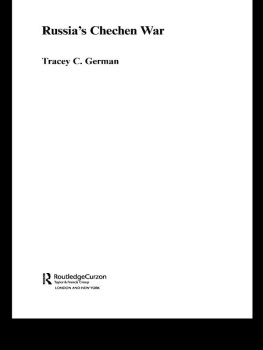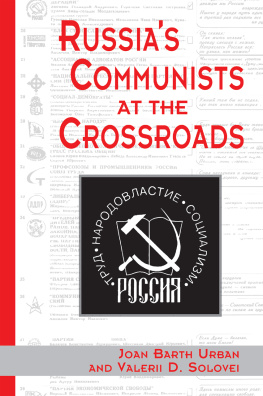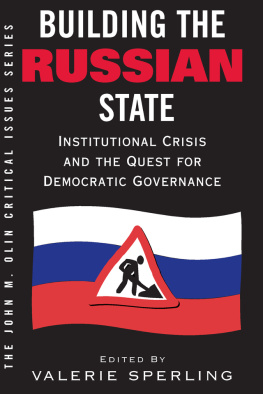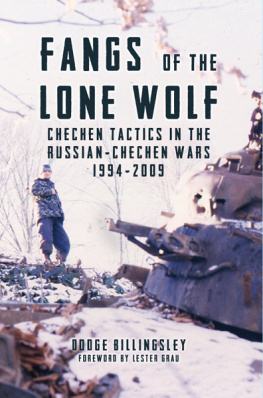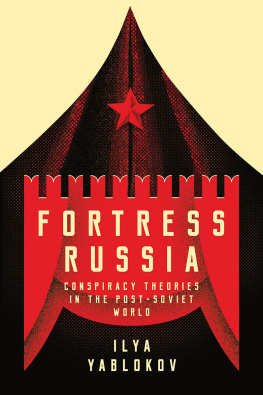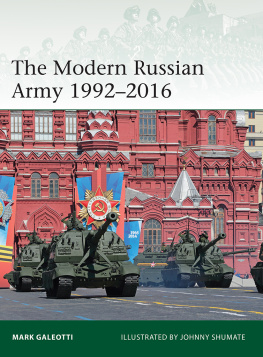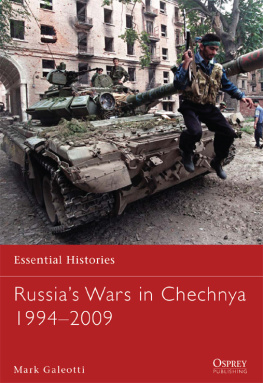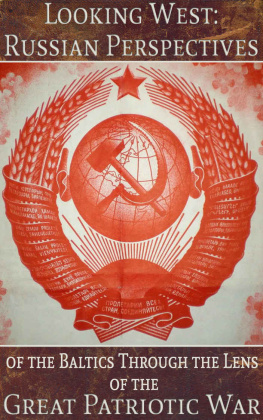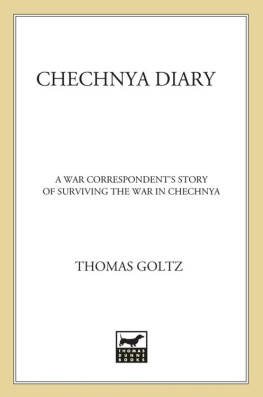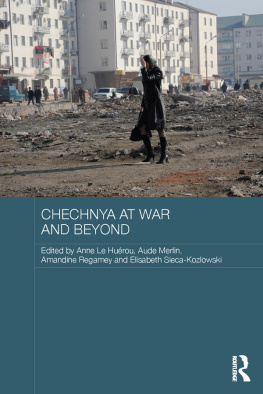Russias Chechen War
Widespread media interest in the Chechen conflict reflects an ongoing concern about the evolution of federal Russia. Why did the Russian leadership initiate military action against Chechnya in December 1994, but against no other constituent part of the Federation? This study demonstrates that the Russian invasion represented the culmination of a crisis that was perceived to have become an increasing threat not only to the stability of the North Caucasus region, but also to the very foundations of Russian security. It looks closely at the Russian Federation in transition, following the collapse of the communist Soviet Union, and the implications of the 1991 Chechen Declaration of Independence in the context of Russias democratisation project.
Tracey C. German is a graduate in Russian from the University of Edinburgh and was awarded a PhD by the University of Aberdeen on Russias conflict with Chechnya. She has lived in Russia and Ukraine, and is currently a Research Manager at the World Markets Research Centre, specialising in the former Soviet Union and its energy sector.
Russias Chechen War
Tracey C. German
First published 2003
by RoutledgeCurzon
11 New Fetter Lane, London EC4P 4EE
Simultaneously published in the USA and Canada
by RoutledgeCurzon
29 West 35th Street, New York, NY 10001
This edition published in the Taylor & Francis e-Library, 2003.
RoutledgeCurzon is an imprint of the Taylor & Francis Group
2003 Tracey C. German
All rights reserved. No part of this book may be reprinted or reproduced or utilised in any form or by any electronic, mechanical, or other means, now known or hereafter invented, including photocopying and recording, or in any information storage or retrieval system, without permission in writing from the publishers.
British Library Cataloguing in Publication Data
A catalogue record for this book is available from the British Library
Library of Congress Cataloging in Publication Data
German, Tracey, C., 1971
Russias Chechen war/Tracey C. German.
Simultaneously published in the USA and Canada.
Includes bibliographical references.
1. Chechn (Russia)HistoryCivil War, 1994 2. Chechn
(Russia)RelationsRussia (Federation) 3. Russia
(Federation)RelationsChechn (Russia) 4. Chechn
(Russia)HistoryAutonomy and independence movements. 5.
DemocracyRussia (Federation) 6. Russia (Federation)Politics and
government1991 I. Title.
DK511.C37 G47 2003
947.5'2dc21 2002032613
ISBN 0-203-41776-3 Master e-book ISBN
ISBN 0-203-41920-0 (Adobe eReader Format)
ISBN 0-415-29720-6 (Print Edition)
eISBN: 978-1-13443-249-3
Tables
Abbreviations
| ASSR | Autonomous Soviet Socialist Republic |
| CIS | Commonwealth of Independent States |
| CPSU | Communist Party of the Soviet Union |
| EC | Executive Council of the National Congress of Chechen People |
| FSK | Federal Counterintelligence Service |
| IC | Interim Council |
| KGB | Committee of State Security |
| KNK | Confederation of Peoples of the North Caucasus |
| KOUNKh | Chechen Committee for the Management of the Economy |
| LDPR | Liberal Democratic Party of Russia |
| MVD | Ministry of Internal Affairs |
| NF | Chechen National Front |
| NATO | North Atlantic Treaty Organisation |
| NCMD | North Caucasus Military District |
| ODChN | National Movement of the Chechen People |
| OKChN | National Congress of the Chechen People |
| OSCE | Organisation for Security and Cooperation in Europe |
| RSFSR | Russian Soviet Federal Socialist Republic |
| SNGS | Council of National and Civil Accord |
| SSR | Soviet Socialist Republic |
| SWB | BBC Summary of World Broadcasts |
| UNPO | Unrepresented Nations and Peoples Organisation |
| USSR | Union of Soviet Socialist Republics |
| VDP | Vainakh Democratic Party |
| VLKSM | All-Union Leninist Communist Youth League |
| WTO | Warsaw Treaty Organisation |


Map 1 Chechnya
Map 2 Ethnolinguistic groups in the Caucasus region
Source: The Perry-Castaeda Library Map Collection, The University of Texas at Austin
Introduction
The Russian invasion of Chechnya in December 1994 represented the culmination of a crisis that was perceived to have become an increasing threat not only to the stability of the North Caucasus region, but also to the very foundations of Russian security. The intervention, intended as a highly visible display of military strength and enduring might, merely emphasised the fundamental structural and behavioural weaknesses of many Russian institutions in the post-Soviet era, notably the presidency, government, parliament and armed forces. Renewed fighting in Chechnya, which began at the end of 1999, has re-focused attention on Russias relationship with its constituent parts, particularly in the volatile North Caucasus. It also serves to emphasise the importance of the region to Russia, which is expending vast quantities of resources, both material and human, in a second attempt to subdue the rebellious republic. The protracted crisis has proved to be a significant juncture in the development of the fledgling Russian democracy and illustrates the highly personalised nature of decision-making in the post-communist era.
The aim of this study is to identify and explore the issues behind the evolution of post-Soviet Russias conflict with Chechnya and investigate why a political crisis was permitted to deteriorate into a full-scale war. Many motives have been ascribed to the war of 199496, ranging from the neo-imperialist ambitions of the centre to ethno-nationalist tendencies on the periphery. This study will examine the causes of Russias conflict with Chechnya within the context of the Federations transition away from communist rule, towards its own distinctive interpretation of the democratic ideal.
A brief portrait of the Chechen nation
In order to understand the motivating forces on both sides of the conflict and the origins of the decision to invade, it is necessary to examine the historical relationship of Russia and the myriad peoples of the North Caucasus.struggled to dominate the volatile Caucasus region, which is vital both geopolitically and economically. The region plays a crucial economic role as it is a vital supply route for oil from the Caspian Sea, which provides a source of income for republics across the North Caucasus. However, the complex level of ethnic diversity and myriad peoples of the Caucasus represent a significant threat to the security of Russias southern fringes. Even the Russian term Chechen is inextricably linked with the incessant hostilities in a history where peace has been the exception it is derived from the name of the village (

